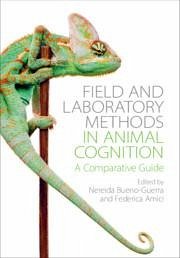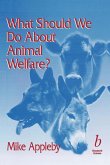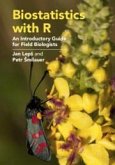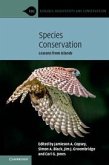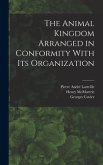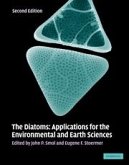Field and Laboratory Methods in Animal Cognition
A Comparative Guide
Herausgeber: Bueno-Guerra, Nereida; Amici, Federica
Field and Laboratory Methods in Animal Cognition
A Comparative Guide
Herausgeber: Bueno-Guerra, Nereida; Amici, Federica
- Gebundenes Buch
- Merkliste
- Auf die Merkliste
- Bewerten Bewerten
- Teilen
- Produkt teilen
- Produkterinnerung
- Produkterinnerung
Leading researchers present current methodological approaches and future directions for a less anthropocentric study of animal cognition.
Andere Kunden interessierten sich auch für
![What Should We Do about Animal Welfare? What Should We Do about Animal Welfare?]() Michael C ApplebyWhat Should We Do about Animal Welfare?62,99 €
Michael C ApplebyWhat Should We Do about Animal Welfare?62,99 €![Hydraulic Laboratory Techniques Hydraulic Laboratory Techniques]() Bureau Of ReclamationHydraulic Laboratory Techniques46,99 €
Bureau Of ReclamationHydraulic Laboratory Techniques46,99 €![Biostatistics with R Biostatistics with R]() Jan LepsBiostatistics with R102,99 €
Jan LepsBiostatistics with R102,99 €![Species Conservation Species Conservation]() Species Conservation125,99 €
Species Conservation125,99 €![Sentient Entanglements and Ruptures in the Americas: Human-Animal Relations in the Amazon, Andes, and Arctic Sentient Entanglements and Ruptures in the Americas: Human-Animal Relations in the Amazon, Andes, and Arctic]() Sentient Entanglements and Ruptures in the Americas: Human-Animal Relations in the Amazon, Andes, and Arctic125,99 €
Sentient Entanglements and Ruptures in the Americas: Human-Animal Relations in the Amazon, Andes, and Arctic125,99 €![The Animal Kingdom Arranged in Conformity With its Organization The Animal Kingdom Arranged in Conformity With its Organization]() Georges CuvierThe Animal Kingdom Arranged in Conformity With its Organization41,99 €
Georges CuvierThe Animal Kingdom Arranged in Conformity With its Organization41,99 €![The Diatoms The Diatoms]() The Diatoms299,99 €
The Diatoms299,99 €-
-
-
Leading researchers present current methodological approaches and future directions for a less anthropocentric study of animal cognition.
Produktdetails
- Produktdetails
- Verlag: Cambridge University Press
- Seitenzahl: 456
- Erscheinungstermin: 9. August 2018
- Englisch
- Abmessung: 235mm x 170mm x 25mm
- Gewicht: 1061g
- ISBN-13: 9781108420327
- ISBN-10: 110842032X
- Artikelnr.: 50987703
- Herstellerkennzeichnung
- Libri GmbH
- Europaallee 1
- 36244 Bad Hersfeld
- gpsr@libri.de
- Verlag: Cambridge University Press
- Seitenzahl: 456
- Erscheinungstermin: 9. August 2018
- Englisch
- Abmessung: 235mm x 170mm x 25mm
- Gewicht: 1061g
- ISBN-13: 9781108420327
- ISBN-10: 110842032X
- Artikelnr.: 50987703
- Herstellerkennzeichnung
- Libri GmbH
- Europaallee 1
- 36244 Bad Hersfeld
- gpsr@libri.de
Foreword Josep Call; Introduction: the concept of umwelt in experimental
animal cognition Nereida Bueno-Guerra and Federica Amici; 1. Ants -
individual and social cognition Zhanna Reznikova; 2. Bats - using sound to
reveal cognition Yossi Yovel and Stefan Greif; 3. Bees - the experimental
umwelt of honeybees Randolf Menzel; 4. Carib grackles - field and lab work
on a tame, opportunistic island icterid Simon Ducatez, Sarah E. Overington,
Jean-Nicolas Audet, Marine Battesti and Louis Lefebvre; 5. Chicken -
cognition in the poultry yard Cinzia Chiandetti and Giorgio Vallortigara;
6. Chimpanzees - investigating cognition in the wild Roman M. Wittig and
Catherine Crockford; 7. Dolphins and whales - taking cognitive research out
of the tanks and into the wild Volker B. Deecke; 8. Elephants - studying
cognition in the African Savannah Lucy A. Bates; 9. Fish - how to ask them
the right questions Catarina Vila Pouca and Culum Brown; 10. Hermit crabs -
information gathering by the hermit crab, pagurus bernhardus Robert W.
Elwood; 11. Hyenas - testing cognition in the umwelt of the spotted hyena
Lily Johnson-Ulrich, Kenna D. S. Lehman, Julie W. Turner and Kay E.
Holekamp; 12. Lizards - measuring cognition in lizards: practical
challenges and the influence of ecology and social behaviour Martin J.
Whiting and Daniel W. A. Noble; 13. Meerkats - identifying cognitive
mechanisms underlying meerkat coordination and communication: experimental
designs in their natural habitat Marta Manser; 14. Octopuses - mind in the
waters Jennifer A. Mather and Michael J. Kuba; 15. Grey parrots (Psittacus
erithacus) - cognitive and communicative abilities Irene M. Pepperberg; 16.
Sharks - elasmobranch cognition Tristan L. Guttridge, Kara E. Yopak and
Vera Schluessel; 17. Spiders - hints for testing cognition and learning in
jumping spiders Elizabeth M. Jakob, Skye M. Long and Margaret Bruce; 18.
Tortoises - cold-blooded cognition: how to get a tortoise out of its shell
Anna Wilkinson and Ewen Glass; Epilogue Nereida Bueno-Guerra.
animal cognition Nereida Bueno-Guerra and Federica Amici; 1. Ants -
individual and social cognition Zhanna Reznikova; 2. Bats - using sound to
reveal cognition Yossi Yovel and Stefan Greif; 3. Bees - the experimental
umwelt of honeybees Randolf Menzel; 4. Carib grackles - field and lab work
on a tame, opportunistic island icterid Simon Ducatez, Sarah E. Overington,
Jean-Nicolas Audet, Marine Battesti and Louis Lefebvre; 5. Chicken -
cognition in the poultry yard Cinzia Chiandetti and Giorgio Vallortigara;
6. Chimpanzees - investigating cognition in the wild Roman M. Wittig and
Catherine Crockford; 7. Dolphins and whales - taking cognitive research out
of the tanks and into the wild Volker B. Deecke; 8. Elephants - studying
cognition in the African Savannah Lucy A. Bates; 9. Fish - how to ask them
the right questions Catarina Vila Pouca and Culum Brown; 10. Hermit crabs -
information gathering by the hermit crab, pagurus bernhardus Robert W.
Elwood; 11. Hyenas - testing cognition in the umwelt of the spotted hyena
Lily Johnson-Ulrich, Kenna D. S. Lehman, Julie W. Turner and Kay E.
Holekamp; 12. Lizards - measuring cognition in lizards: practical
challenges and the influence of ecology and social behaviour Martin J.
Whiting and Daniel W. A. Noble; 13. Meerkats - identifying cognitive
mechanisms underlying meerkat coordination and communication: experimental
designs in their natural habitat Marta Manser; 14. Octopuses - mind in the
waters Jennifer A. Mather and Michael J. Kuba; 15. Grey parrots (Psittacus
erithacus) - cognitive and communicative abilities Irene M. Pepperberg; 16.
Sharks - elasmobranch cognition Tristan L. Guttridge, Kara E. Yopak and
Vera Schluessel; 17. Spiders - hints for testing cognition and learning in
jumping spiders Elizabeth M. Jakob, Skye M. Long and Margaret Bruce; 18.
Tortoises - cold-blooded cognition: how to get a tortoise out of its shell
Anna Wilkinson and Ewen Glass; Epilogue Nereida Bueno-Guerra.
Foreword Josep Call; Introduction: the concept of umwelt in experimental
animal cognition Nereida Bueno-Guerra and Federica Amici; 1. Ants -
individual and social cognition Zhanna Reznikova; 2. Bats - using sound to
reveal cognition Yossi Yovel and Stefan Greif; 3. Bees - the experimental
umwelt of honeybees Randolf Menzel; 4. Carib grackles - field and lab work
on a tame, opportunistic island icterid Simon Ducatez, Sarah E. Overington,
Jean-Nicolas Audet, Marine Battesti and Louis Lefebvre; 5. Chicken -
cognition in the poultry yard Cinzia Chiandetti and Giorgio Vallortigara;
6. Chimpanzees - investigating cognition in the wild Roman M. Wittig and
Catherine Crockford; 7. Dolphins and whales - taking cognitive research out
of the tanks and into the wild Volker B. Deecke; 8. Elephants - studying
cognition in the African Savannah Lucy A. Bates; 9. Fish - how to ask them
the right questions Catarina Vila Pouca and Culum Brown; 10. Hermit crabs -
information gathering by the hermit crab, pagurus bernhardus Robert W.
Elwood; 11. Hyenas - testing cognition in the umwelt of the spotted hyena
Lily Johnson-Ulrich, Kenna D. S. Lehman, Julie W. Turner and Kay E.
Holekamp; 12. Lizards - measuring cognition in lizards: practical
challenges and the influence of ecology and social behaviour Martin J.
Whiting and Daniel W. A. Noble; 13. Meerkats - identifying cognitive
mechanisms underlying meerkat coordination and communication: experimental
designs in their natural habitat Marta Manser; 14. Octopuses - mind in the
waters Jennifer A. Mather and Michael J. Kuba; 15. Grey parrots (Psittacus
erithacus) - cognitive and communicative abilities Irene M. Pepperberg; 16.
Sharks - elasmobranch cognition Tristan L. Guttridge, Kara E. Yopak and
Vera Schluessel; 17. Spiders - hints for testing cognition and learning in
jumping spiders Elizabeth M. Jakob, Skye M. Long and Margaret Bruce; 18.
Tortoises - cold-blooded cognition: how to get a tortoise out of its shell
Anna Wilkinson and Ewen Glass; Epilogue Nereida Bueno-Guerra.
animal cognition Nereida Bueno-Guerra and Federica Amici; 1. Ants -
individual and social cognition Zhanna Reznikova; 2. Bats - using sound to
reveal cognition Yossi Yovel and Stefan Greif; 3. Bees - the experimental
umwelt of honeybees Randolf Menzel; 4. Carib grackles - field and lab work
on a tame, opportunistic island icterid Simon Ducatez, Sarah E. Overington,
Jean-Nicolas Audet, Marine Battesti and Louis Lefebvre; 5. Chicken -
cognition in the poultry yard Cinzia Chiandetti and Giorgio Vallortigara;
6. Chimpanzees - investigating cognition in the wild Roman M. Wittig and
Catherine Crockford; 7. Dolphins and whales - taking cognitive research out
of the tanks and into the wild Volker B. Deecke; 8. Elephants - studying
cognition in the African Savannah Lucy A. Bates; 9. Fish - how to ask them
the right questions Catarina Vila Pouca and Culum Brown; 10. Hermit crabs -
information gathering by the hermit crab, pagurus bernhardus Robert W.
Elwood; 11. Hyenas - testing cognition in the umwelt of the spotted hyena
Lily Johnson-Ulrich, Kenna D. S. Lehman, Julie W. Turner and Kay E.
Holekamp; 12. Lizards - measuring cognition in lizards: practical
challenges and the influence of ecology and social behaviour Martin J.
Whiting and Daniel W. A. Noble; 13. Meerkats - identifying cognitive
mechanisms underlying meerkat coordination and communication: experimental
designs in their natural habitat Marta Manser; 14. Octopuses - mind in the
waters Jennifer A. Mather and Michael J. Kuba; 15. Grey parrots (Psittacus
erithacus) - cognitive and communicative abilities Irene M. Pepperberg; 16.
Sharks - elasmobranch cognition Tristan L. Guttridge, Kara E. Yopak and
Vera Schluessel; 17. Spiders - hints for testing cognition and learning in
jumping spiders Elizabeth M. Jakob, Skye M. Long and Margaret Bruce; 18.
Tortoises - cold-blooded cognition: how to get a tortoise out of its shell
Anna Wilkinson and Ewen Glass; Epilogue Nereida Bueno-Guerra.

